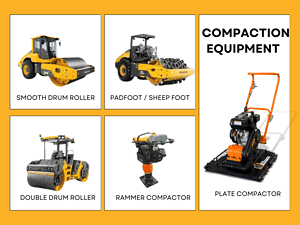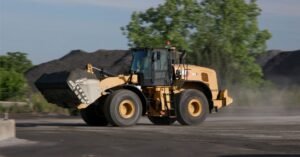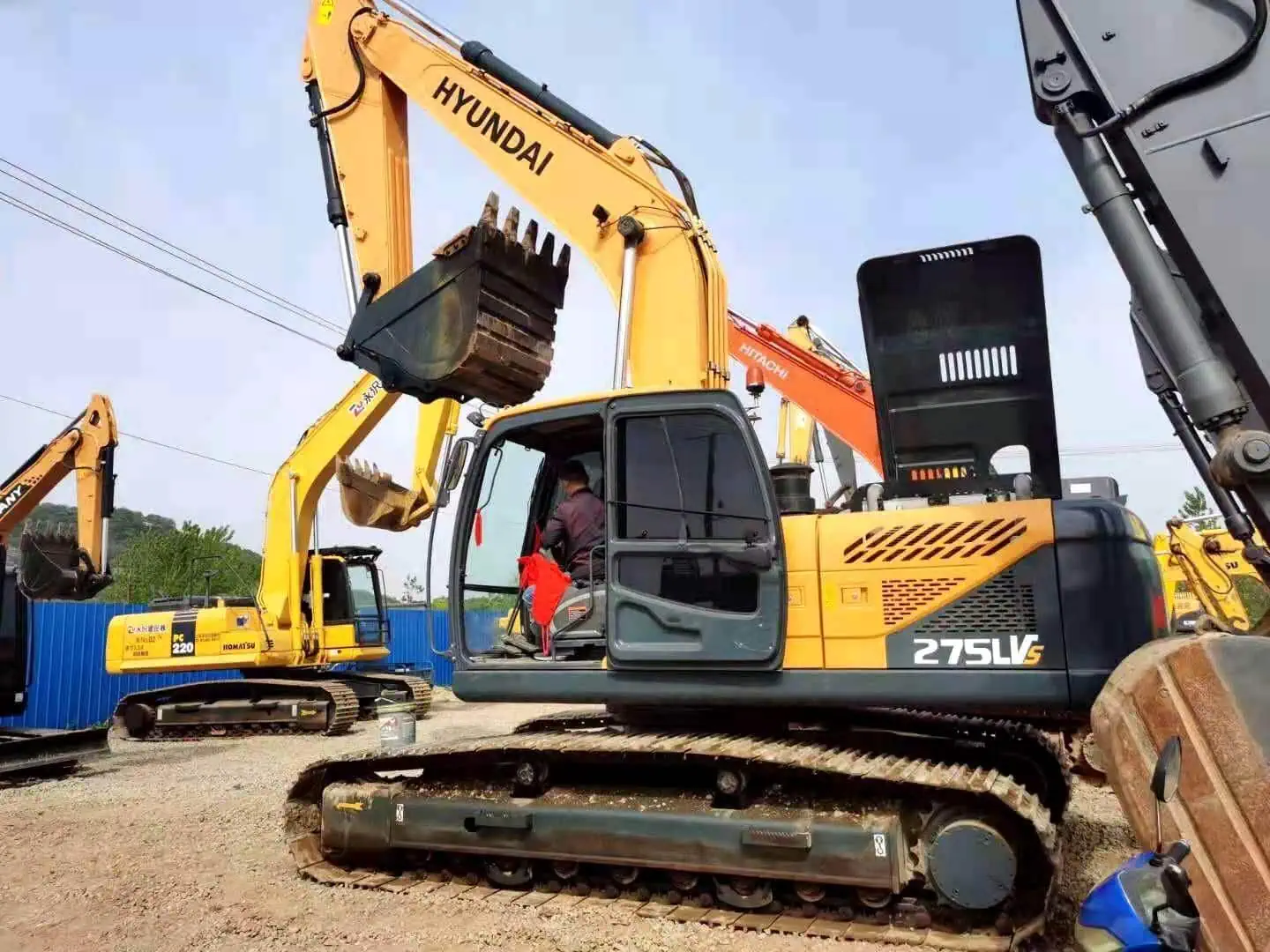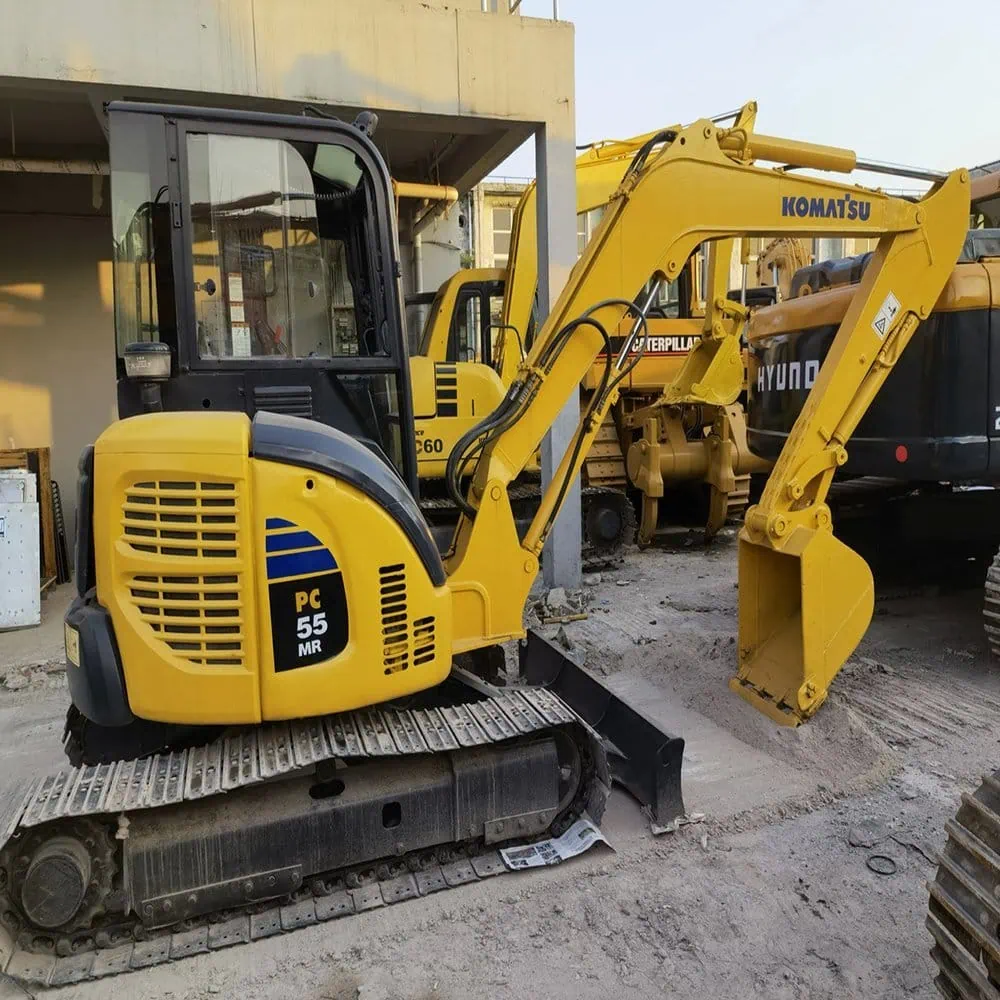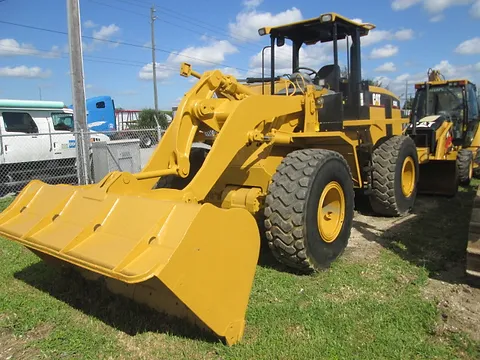In construction, excavation, and earth-moving projects, your choice of equipment is central to your efficiency and ultimate success. Two of the most common machines you’ll see on a job site are excavators and bulldozers. Both are used to move dirt, but they have very different applications. Pick the wrong one for your job and you risk delays, cost overruns, or less than optimal results. This guide will help you understand the crucial differences between excavators and bulldozers. We’ll cover the work they do, the situations they work best in, and the factors that should dictate whether you reach for one of these or the other on your next project.
Excavator vs bulldozer play essential yet distinct roles on construction sites. Excavators are specialized for digging and lifting, often used in tasks requiring precision and reach. In contrast, bulldozers excel at leveling, pushing, and clearing ground over large areas. Understanding the advantages of each machine and assessing project needs can ensure you select the best tool for optimal productivity.
Let’s take a closer look at what to watch for in each machine, their strong suits, and when you’ll reach for one, the other, or neither because you have a specific need for something else.r

Table of Contents
ToggleWhat is an Excavator and How Does It Work?
First, an excavator is a powerful piece of construction equipment primarily used to dig, lift, and move large amounts of earth. Its most distinguishing feature is a long arm with a bucket attached at the end, which allows the machine to dig in deep and precise places. Second, it also has an operator’s cab that is mounted on a swivel, so the operator can turn the cab and the attachment 360 degrees. Most excavators have tracks on them, which gives them more stability and mobility on rough surfaces. You can also find excavators with wheels if you need to move over smoother ground.
Third, they are designed to be very versatile and can hold a bunch of different attachments such as augers, breakers, and grapples to make them even more useful. Fourth, sizes range from compact mini-excavators that can fit through doors, into tight alleys, and work around the confines of urban space to large machines for massive heavy-duty work. And, fifth, their hydraulic systems enable an operator to perform a lot of delicate, powerful movements as needed to get the job done. This makes an excavator an absolutely indispensable tool on most job sites.

What is a Bulldozer and How Is It Different?
A bulldozer is another type of heavy equipment used on jobsites, construction, and earth-moving projects. Bulldozers are characterized by a big metal blade on the front that they use to push, clear, and level off dirt, rubble, and other debris. That blade can tilt or angle up and down to change how and where the material is pushed, making a bulldozer the perfect machine for leveling and grading land.
To help distribute the weight, most bulldozers are equipped with tracks, giving them good stability when working in mud or over soft, uneven surfaces. When those tracks are moving, they really help prevent the bulldozer from sinking down into the ground. Depending on the size and model of the bulldozer, some also sport rear attachments that break up dirt and rocks, called a ripper. Unlike excavators, bulldozers don’t have the option to easily switch out attachments to utilize more functions. However, their primary tasks of leveling and clearing large swaths of ground make them a popular and often necessary machine for most projects.

What Are the Advantages of an Excavator?
Excavators provide several significant advantages when you need to dig, lift, and otherwise handle material in a very precise and controlled way:
- To Dig Holes: It’s great for moving earth out of the way where you need a hole, like for foundations, trenches, and large ditches.
- With Attachments: An excavator can be fitted with several different attachments, including buckets, augers for digging holes and poles for setting posts, breakers, and grapples for picking and lifting objects. This machine can perform the tasks of several other kinds of equipment, such as tractors and cranes, thanks to its adaptability. This capacity for multi-tasking makes it a critical machine in all types of construction and earth-moving environments.
- To Reach Out and Touch Someone: If you need to dig, sweep, or load in any direction other than straight up while staying in one place, this is the machine you want. Note that the farther you reach out with that arm, the less you can lift and hold without tipping over the machine. Therefore, your operator’s ability to manage the excavator’s stability and weight will determine how much work they can do and how safely they can complete it.
- In Small Spaces: The mini-excavator is perfect for getting into and working in tight spaces, such as in urban construction or landscaping and other smaller digging jobs around the house and business.
The ability to reach far out and down makes excavators ideal for projects that require extra reach, depth, and ability to use a variety of attachments to complete multiple types of tasks.
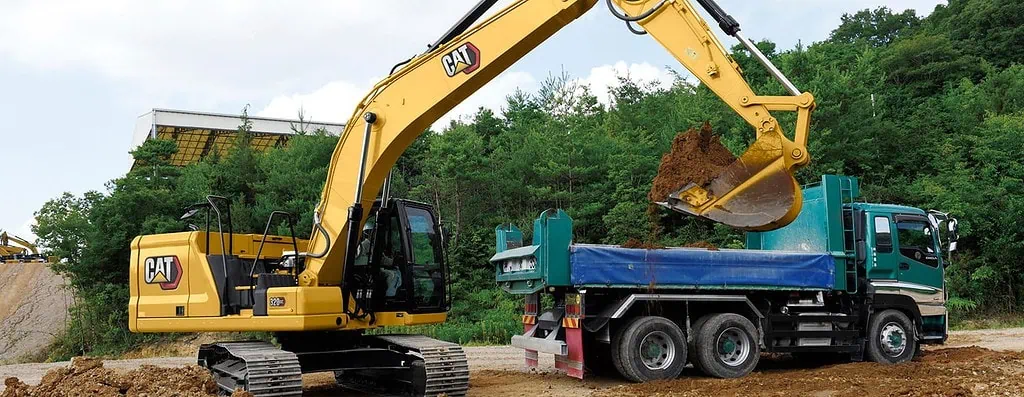
What Are the Advantages of a Bulldozer?
For all jobs where you need to push and move large amounts of dirt, mud, and other debris. A bulldozer can move a lot of material in a hurry. Whether you’re building a road, cutting a wide path, clearing a big space, or leveling a field, a bulldozer is exactly what you need to help you get the job done.
Powerful Grading and Leveling: The heavy, strong blade on the front of a bulldozer allows it to move large amounts of material quickly and efficiently. It’s perfect for cleaning off a site and getting it all cleaned up and level. Stable on Soft or Uneven Ground: Because most bulldozers have tracks rather than wheels, they are a terrific option when your work is in the mud or on ground that shifts, and you worry about tipping or getting stuck.
Efficient for Clearing Land and First Cuts: As a heavy piece of machinery, the initial site work for your project will probably involve some brush and small trees. Don’t send the chainsaws and brush cutters in; hit it with a bulldozer and push it over, instead. Simplicity in Operation: Although it requires skill and experience to run a bulldozer like an expert, the actual number of levers and interaction points to control are fewer and easier than a comparable-sized excavator. For standard jobs, your average earth mover will get on a bulldozer faster than they will an excavator.
These characteristics make a bulldozer an excellent choice for preparing sites for construction, building roads, and any other large, open-area grading jobs where you need a tough, strong machine to push through some tough conditions.
In What Scenarios is an Excavator More Useful?
Excavators do awesome work for any job where you need to dig deep, with precision, and be able to change out the tool at the end of the arm to accomplish several tasks with one machine. Here are a few great places we often see excavators used:
Foundation and Trench Work: Digging in tight, long trenches for setting utility lines and foundation work. Demolition: Using a hydraulic hammer, you can break up large concrete structures and other material to clear an area by swinging the hammer attachment. Dredging: Often, an excavator is used to scoop and pull a lot of material, such as removing sediment from a waterway.
This allows the water to flow through the body of water, whether it’s a small pond or a long river. Urban Work: In tight, confined areas such as in-town construction, when there’s an alleyway or small space that needs to be dug, these same excavators in a smaller size—mini-excavators—can be used to do that work. You can either get a machine that’s small so it can get into a small space, or you can use a machine large enough to do the job all at one time. Excavators are your all-in-one machine choice.
Excavators are the go-to tool for any job that needs outstanding precision and dexterity. If you need to dig a hole along a line, need to get to a specific depth, or need to work around tight spots and objects, then an excavator is the machine you need. If you have a lot of different tasks, all over a large area, to do and you need to swap tools or attachments frequently to get them done, then an excavator is the machine you need.
When is a Bulldozer the Better Choice?
An awesome all-around machine for anything that involves big-scale clearing, pushing, and leveling on an open or large area. Roads: Oftentimes new roads get started with a bulldozer. The first work done is clear out where the road will be built. Fields: Before the crops get planted, the ground needs to be leveled. So, the bulldozer will come in to clear the land and make the planting or plowing easy.
Landfills: Trash compactors push large amounts of trash into a big hole in the ground and bury it. Demolition: Trash, debris, and detritus need to be pushed around and leveled off. Major Site Clearing: Before any other work, first you have to completely level the project site or big site area. All this work gets done, day in and day out, by bulldozers. In fact, if they disappear one day, we’d be in a huge amount of trouble quickly.
Roadway Construction: When the road needs to be flattened and graded for the blacktop or layers of stone to be laid down. Land Clearing: Trash, brush, and small trees need to be taken out of areas to be developed. Construction Site Preparation: Before you can build, you have to get the land ready for work to start. This equipment will help clear and level off the building site, so work can begin on the structure.
Excavating and Mining: This includes everything from grading the area for a new site to digging massive ditches, slicing into the earth, and leveling tailing piles and other earthen material. On large job sites, a bulldozer is typically a better machine to move and level off lots of material quickly and over a large distance all day long than an excavator. Mining and quarries: The material is moved, leveled, and maintained with these awesome machines every working day.

How Do Excavator Vs Bulldozer Costs Compare?
Purchase price: Excavators are generally more expensive to buy than bulldozers because of the complicated hydraulic systems and the ability to handle multiple tasks with different attachments. The bigger the excavator, the more expensive it is. Rental rates: Because of the complexity and cost to keep all the cool moving parts moving well on an excavator, these machines are going to cost you more to rent. Daily rental rates for small ones can range from just under a grand to several thousand a day for the larger excavators. (Those prices are very rough guidelines only.
Operation: Fixed costs for an excavator are traditionally higher due to increased maintenance and fuel consumption. Greater complexity generally equates to higher maintenance costs. Meanwhile, simple dozers may need less maintenance and certainly don’t require the same sort of hydraulic systems as the more complicated excavators. Resale value: Compact excavators, especially the ones you can put a bunch of different attachments on, often hold their value pretty well.
On the other hand, if you have a bulldozer with a specific function and you only use it for that one task, history shows it’s not going to retain as much of its original value if you ever decide to sell it. Understanding these costs now will help you manage the maintenance and operating costs better in the future. Look at the expected usage of both types of machines to plan your budget correctly. If you’re not sure whether you’ll need your earth-moving equipment regularly, you can always look at renting instead of buying.
What Attachments Are Available for Each Machine?
Attachments are a huge selling point for an excavator and, to a lesser extent, a bulldozer. Those attachments make each piece of heavy equipment a multi-purpose tool dramatically increasing how you can use them on your job site. For the excavator: When you attach your bucket, your hydraulic hammer, your grapple or grabber, your auger, your quick coupler to pick up and move anything you need, or your compactor for packing things down, now you can use one machine to do all the tasks of a bunch of different machines.
For the bulldozer:
These are pretty simple tools, so they don’t have the attachment options an excavator does, but you can still mix it up somewhat. For example, most dozers will have an option called a ripper blade. Essentially this is a knife that sticks out the bottom of the machine and is ripped or dragged through the soil to break it up.
Also, look for a big winch. Just like on a boat, the operator can unspool a ton of cable and then drag or push a huge object across the ground with a lot of power behind it. Regardless of the situation, attachments will allow you to use these machines in different circumstances, whether you’re digging, dozing, or site prepping. In general, the ability to add and remove so many attachments makes both machines more useful on your job site every day.
How to Choose the Right Equipment for Your Project?
In summary, for most types of earth-moving jobs, you’ll wind up renting or buying either an excavator or a bulldozer. By understanding the differences between these two pieces of equipment and the work they perform, you can make an informed decision that will save time, labor, fuel, and most importantly, money!
1. Excavators are good for precision work and can dig deep and effectively. This feature makes them ideal for working around buildings and other fixed objects when you need to get the dirt from here to there. 2. A bulldozer is good for large, open-area work and quickly moving a lot of material like topsoil and aggregates around the job site. So, depending on the type and scale of work that needs to be done, you will lease or rent the right kind of heavy equipment for the job.
What Are the Limitations of Using a Bulldozer?
1.Little Precise Work: A bulldozer is made for big jobs, not little, chintzy work. It’s great when you need to level off and do a big push, but if you must pick away at something to get it just right, a bulldozer is not the tool you want to pick up. 2.Not Many Attachment Options: These old boys work mostly by pushing material around and can sometimes lift something heavy.
Other than a ripper blade or a big winch, you can’t mix it up too much more with a bulldozer, as you can with an excavator. 3.Nope, Noisy, and Sometimes No Go: Any operation requiring a bulldozer to work in tight quarters, with precision effort, around a lot of fancy buildings, just won’t see a whole lot of dozer-duty.
And sometimes, a bulldozer is the last thing you want to have to bring to work if you don’t have a lot of room, and you need to find a place to store it each night. Even though they’re an ideal machine for a ton of work, they’re not always the best tool for every job. You’ll need to evaluate the site and the work in front of you to sort out if you should lease a bulldozer or rent an excavator for the day.
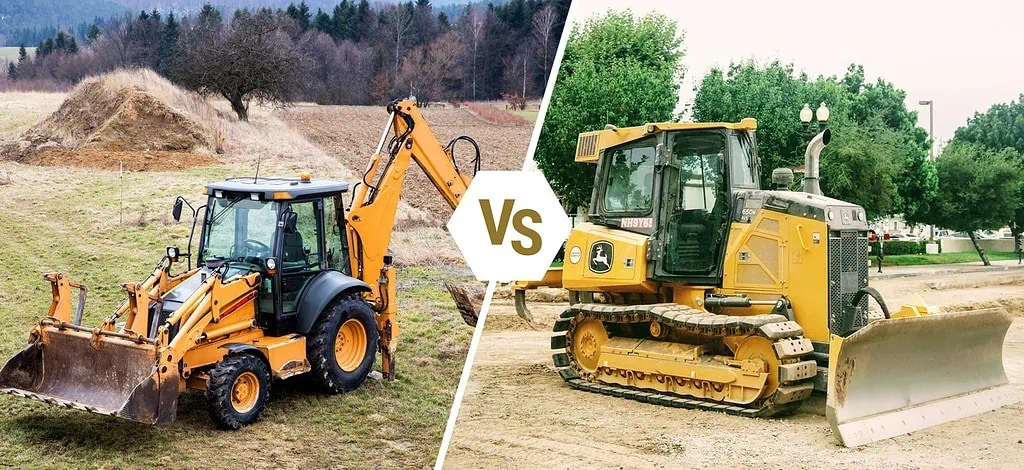
Can You Use Excavator vs Bulldozer Together for a Project?
In trenching and footing work, the excavator will finish the job in much less time than a bulldozer. In the initial clearing and site leveling work, it will take a few minutes for a dozer to do what it will take the excavator hours to accomplish. So, when it comes down to selecting one machine, you might want to consider using both.
1. Excavating and Preparing the Site: Use the excavator to dig trenches, set footings, and move lots of material. Then use the bulldozer to level and bring the site to rough grade.
2. Clearing and Final Work: It’s possible to use the bulldozer on the initial push to clear and level off a piece of property. When it’s time to detail things out, you’ll use the excavator to dig around foundations, in tight pavement areas, and anywhere needing a more precision take.
3. Reducing Time and Money: At the end of the day, if a job requires heavy excavation to start, then a complete leveling operation, consider using both the excavator and the bulldozer. What this all boils down to is money.
If you overwork a machine by using it everywhere when a more suitable machine is waiting to brush to the rescue, you’ll run into costly, dangerous, and time-wasting problems. Use the right machine for the right work—even when it requires you to put both to work at the same time. For many bigger jobs, especially in urban settings or tight areas, this might be the game plan that saves you heartache, hard work, and money at the end of the day.
Summary
So, which is the “better” machine – the one that is perfectly suited to the job at hand. It depends on what you need to do. If you need to dig, do precision work, or quickly and easily change implements and attachments, you need an excavator. If you need to grade, level, or quickly and effectively clear large areas, you need a bulldozer.
If you need to do both in the same project, use both, and you’ll be more efficient and productive than you would with just one or the other. Success comes from understanding the true strengths and limitations of equipment and matching them to your overall objectives in a way that makes the most sense for your business. For more information or professional advice, feel free to contact us.

